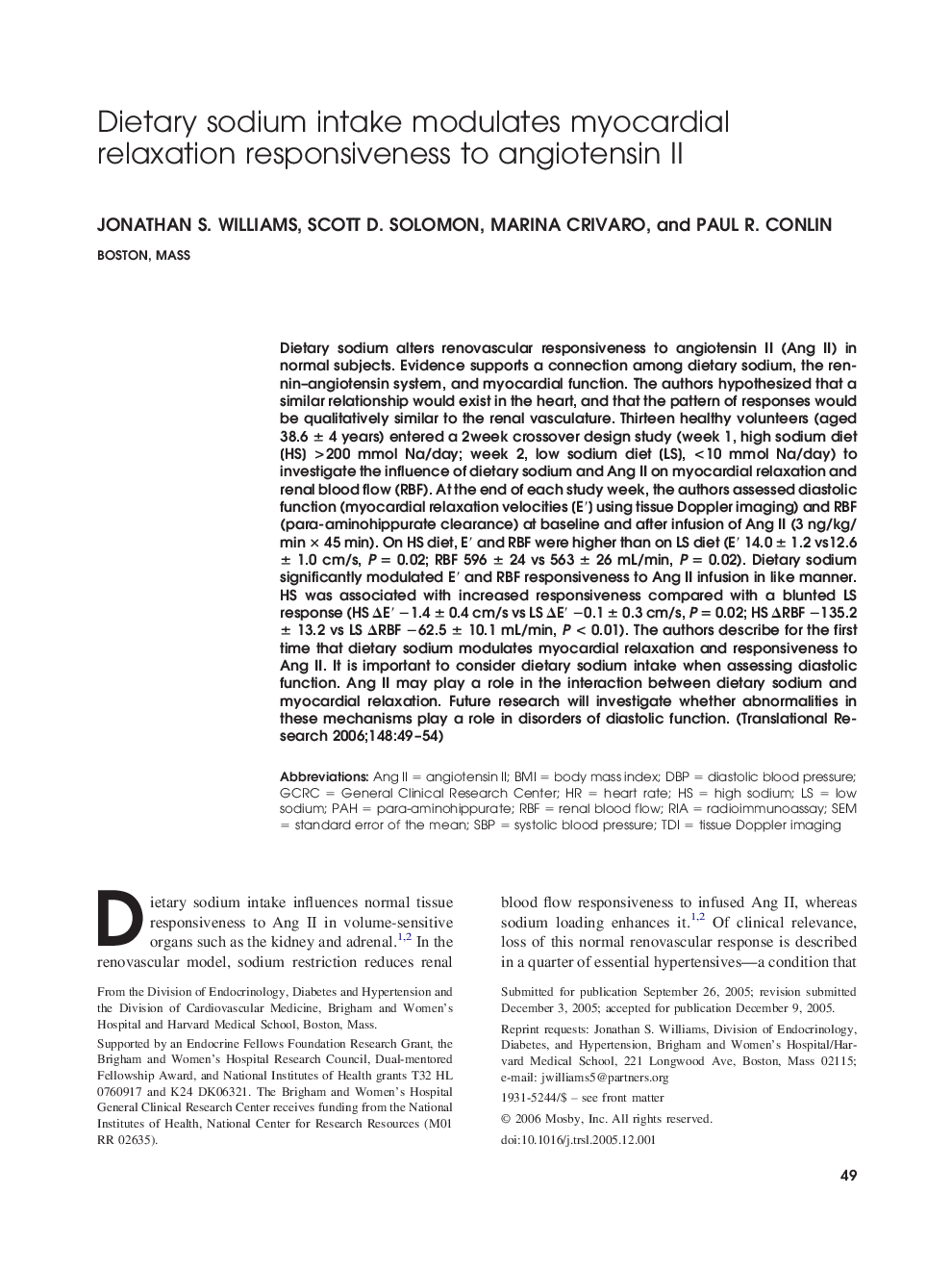| Article ID | Journal | Published Year | Pages | File Type |
|---|---|---|---|---|
| 3841561 | Translational Research | 2006 | 6 Pages |
Dietary sodium alters renovascular responsiveness to angiotensin II (Ang II) in normal subjects. Evidence supports a connection among dietary sodium, the rennin–angiotensin system, and myocardial function. The authors hypothesized that a similar relationship would exist in the heart, and that the pattern of responses would be qualitatively similar to the renal vasculature. Thirteen healthy volunteers (aged 38.6 ± 4 years) entered a 2week crossover design study (week 1, high sodium diet [HS] >200 mmol Na/day; week 2, low sodium diet [LS], <10 mmol Na/day) to investigate the influence of dietary sodium and Ang II on myocardial relaxation and renal blood flow (RBF). At the end of each study week, the authors assessed diastolic function (myocardial relaxation velocities [E′] using tissue Doppler imaging) and RBF (para-aminohippurate clearance) at baseline and after infusion of Ang II (3 ng/kg/min × 45 min). On HS diet, E′ and RBF were higher than on LS diet (E′ 14.0 ± 1.2 vs12.6 ± 1.0 cm/s, P = 0.02; RBF 596 ± 24 vs 563 ± 26 mL/min, P = 0.02). Dietary sodium significantly modulated E′ and RBF responsiveness to Ang II infusion in like manner. HS was associated with increased responsiveness compared with a blunted LS response (HS ΔE′ −1.4 ± 0.4 cm/s vs LS ΔE′ −0.1 ± 0.3 cm/s, P = 0.02; HS ΔRBF −135.2 ± 13.2 vs LS ΔRBF −62.5 ± 10.1 mL/min, P < 0.01). The authors describe for the first time that dietary sodium modulates myocardial relaxation and responsiveness to Ang II. It is important to consider dietary sodium intake when assessing diastolic function. Ang II may play a role in the interaction between dietary sodium and myocardial relaxation. Future research will investigate whether abnormalities in these mechanisms play a role in disorders of diastolic function.
